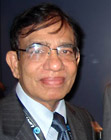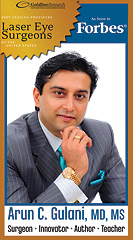
Do you snore? Part I
The problem of Sleep Apnea, a serious disorder

“Laugh and the world laughs with you, snore and you snore alone!”
Occasionally, I watch the popular TV show “American Funny Videos” and they recently aired a segment showing people snoring, majority of them men. Some had their mouths wide open with jaws completely dropped, others making sounds anything from wailing to barking; some even sounded like a car engine, albeit about to break down. There was wild laughter from the audience.
However, snoring is not a laughing matter, folks. Listen to the story of Michelle and her 71-year-old husband Rob whom I follow regularly for hypertension. But on this day, Rob came to the office at the insistence of his wife, who said:
“Doctor N, can you do something about his fatigue? Maybe it is the side effect of the medicines, do you think? He is so tired he falls asleep in front of the TV.”
That prompted me to ask the question, “Does he snore at night?”
It was as if she was waiting for the question. “Does he now?” she started. “He wakes me up every night and then I watch him for a few minutes. He gasps and makes all kinds of frightening noises. At times, he actually stops breathing … oh, boy, that’s scary.” And Ron conceded, “Some nights, I wake up a few times. I just don’t have enough pep these days.”
What the wife was describing and Rob was feeling were the typical symptoms of sleep apnea, a dangerous disorder that causes people to snore loudly and occasionally stop breathing while they sleep. It can cause many other complications too.
Why do we have to sleep?
Who doesn’t feel better on waking up after a good night’s sleep? Scientists feel that the brain demands it and needs it. It is just common sense since it improves your performance all around. Otherwise, you feel cranky, restless and tired. The day becomes a drag. Scientific studies have confirmed these assumptions. Harvard researcher Robert Stickgold tested a number of undergraduate students on various aptitude tests, then allowed them to nap and repeated the tests. His findings: Those who engaged in REM (rapid eye movement) sleep that accounts for 25 percent of sleep time, mostly at the beginning and end of the sleep, subsequently performed better in pattern recognition tasks such as grammar, while those who slept deeply were better at memorization. Technicalities aside, the take home message is “Sleep is very important for your memory and general performance in life.”
How many hours of sleep do you need?
Centers for Disease Control and Prevention say that adults usually require anywhere from seven to nine hours of sleep. These days, many people sleep much less for a wide variety of reasons. A study published in a recent edition of the Archives of Internal Medicine notes, “Middle-aged adults who routinely get fewer than seven to eight hours of sleep a night may be at risk for developing hypertension.” In fact, "for every hour less of sleep, the odds of developing the condition rose an average of 37 percent over five years," and "for every two hours less, the probability rose to 86 percent,” according University of Chicago researchers.
Chronic sleep deprivation also leads to exhaustion, forgetfulness and eventually dementia, amidst other things. A rare disease called Fatal Familial Insomnia (FFI) that is characterized by inability to sleep eventually ends in death. Nobody knows why they die, but the sleep researcher Allen Rochtschaffen showed that rats when kept awake for two weeks continuously, died. Subsequent necropsy studies showed no definite cause of death such as heart damage, so he concluded that they died of ‘exhaustion.’
So, it is clear that sleep is important for everyone. Your parents have often warned you when you were growing up, “Go to bed early today, you have an important test (or interview) coming up tomorrow.” Insomnia, a term we often use to include all kinds of sleep disorders including snoring and sleep apnea, has become all too common in the developed world. In fact, it has reached epidemic proportions, affecting about 60-75 million people or one fifth of the population. Now, you know why sleeping pills are overused and the prescriptions for the same are going up. But the pills are only a temporary fix. So we need to focus on developing a good sleep habits.
To be continued …
Dr. M. P. Ravindra Nathan is a Brooksville cardiologist.
GUEST COLUMN
FOCUSING ON CATARACTS – PART II

To analyze this futuristic concept for example, a Category I (from above classification) cataract patient may be wearing bifocal glasses for farsightedness, astigmatism and presbyopia (reading glasses).
We thus see four visual factors affected here:
1. Cataract (cloudy vision) 2. Farsightedness 3. Astigmatism 4. Presbyopia
The fact that this patient has a medically significant cataract is confirmed. Now, instead of taking such a patient, calling them “routine” and rushing them through a “cataract surgery mill,” your eye surgeon should take this opportunity and correct all of this patient’s visual problems through that one surgery that they need anyway, i.e. cataract surgery.
Custom Planning for Customized Vision:
When designing a customized cataract surgery plan, your eye doctor needs to perform a wide range of state-of-the-art diagnostic tests to determine two major aspects of the plan:
I. Surgical Plan:
-
Surgical technique based on Cataract Densitometry Analysis (kind of cataract)
-
Incision (entry) site and size based on three-dimensional Corneal Topography (shape of your cornea).
-
Calculations for lens implant power, sizing and orientation based on IOL Master V, A-Scan Analysis, OCT, Optical simulator and Scheimpflug Virtual Imaging.
-
Technology Plan
-
Type of Lens Implant: Monofocal / Multifocal / Toric / Accommodating / Dual
-
Type of Advanced Lasik Laser Vision Surgery as staged combination
-
Diamond Astigmatic Keratotomy (AK) Incisions (So your cornea can be shaped from a football to a perfectly spherical basketball shape)
Additionally, combined knowledge of the technologies as well as the optics of the eye will allow measurement of higher order aberrations along with secondary refractive errors and optical zones with Corneal Asphericity (factors that affect vision beyond the three common refractive errors, i.e. nearsighted, farsighted and astigmatism).
Armed with all this information, your doctor can dedicate a plan personalized for each patient aiming for the best vision for the rest of your life.
Getting back to the above patient example with four visual issues, such a patient can elect to have cataract surgery using a multifocal (progressive) lens implant that can correct three out of four visual issues (1, 2 and 4) resulting in only one visual issue remaining, which is Astigmatism (3). This being a function of the football-shaped cornea, it can be addressed with Advanced Lasik Surgery as planned a month after cataract surgery.
Thus, this patient who could have landed as a “routine” case with “routine” cataract surgery now has a customized plan for their individual eye and vision goals.
Future Trends
Laser cataract surgery using nano-precision lasers for surgery and lens implants that can be fine-tuned after surgery (instead of needing exchange) and also become a shade darker in sunlight (just like photocell sunglasses) is a reality.
So, do not fret about being diagnosed with cataracts. Smile and ask your eye doctor if you can now have the vision you always desired with freedom to see at all distances and read without glasses – for the rest of your life.
Arun C. Gulani, M.D., M.S., is director and chief surgeon of Gulani Vision Institute in Jacksonville. He can be reached at [email protected] or visit www.gulanivision.com